„EXPERTISE IS OUR STRENGTH“
We work on a project and innovation base. We put together the best experts from universities, research organisations and the public and private spheres.
PUBLICATIONS
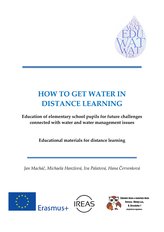
Macháč, Jan et al.
Distance learning requires different methods and content. Gradually, we modified the existing activities developed by IREAS in the Wet.Edu project and proceeded to create new ones that could be applied in distance learning. The aim was, ideally, to replace or supplement frontal teaching in distance learning and at the same time motivate students to self-education. This material aims to expand students’ competences in a broader sense than just being able to switch on online learning, e.g., via MS Teams. The result of our efforts is this educational material, which contains a set of activities developed by us and tested together with schools, suitable for use not only in distance learning. Each activity contains a brief description and a more detailed description of how to implement it in distance learning.
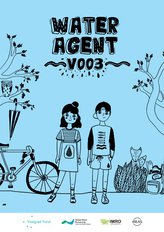
Macháč, Jan; Jeřábková, Michaela (ed.)
A card game based on the Black Peter rules, teaching children the difference between proper and improper water management, modelling of river flow and human interferences with it, and many other activities are ready for you in this teacher’s manual. It deals with water and water management and contains countless activities and entire teaching blocks in three chapters: (1) Water in the Household, (2) Water in the City, and (3) Water in the Landscape. It includes ready-made attachments and worksheets ready for printing and use in teaching. The manual is also available in Czech, Slovak and Hungarian.
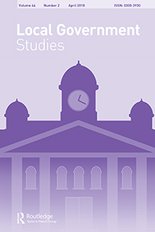
Pavel, Jan; Slavík, Jan
The paper assesses the key factors influencing efficiency of waste-collection services in the Czech Republic with an emphasis on the role of market competition. The abstract is above; the whole paper is available on the journal website here.
SLAVÍK, Jan; RYBOVÁ, Kristýna
The paper identifies the main determinants affecting costs of municipal waste management and proposes measures to reduce the costs.
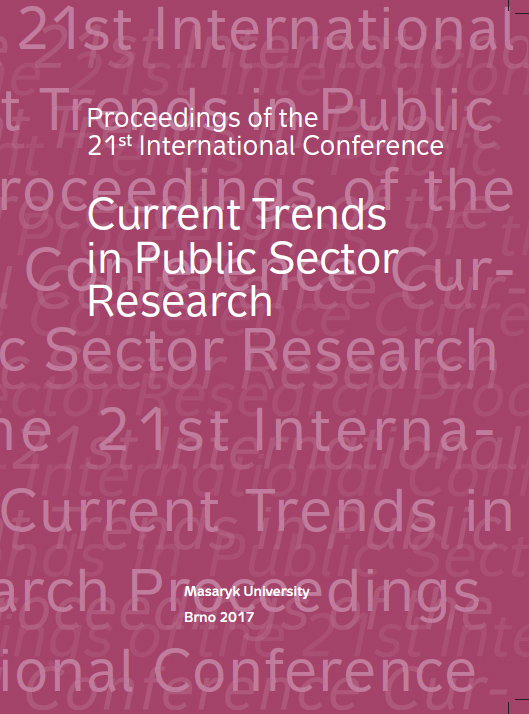
SLAVÍK, Jan; RYBOVÁ, Kristýna
The paper identifies the main determinants affecting costs of municipal waste management and proposes measures to reduce the costs.
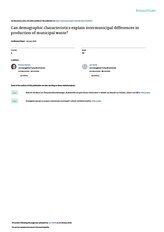
SLAVÍK, Jan; RYBOVÁ, Kristýna
Is municipal waste production affected by the ageing population in the Czech Republic, the growing numbers of one-member households or the level of education? The paper focuses on assessing socio-demographic variables and provides a picture of how these variables affect household behaviour in waste production.
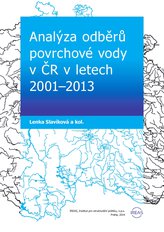
SLAVÍKOVÁ, Lenka a kolektiv
The analysis deals with systematic under-drawing of permitted surface water consumption. The current institutional framework enables those interested in water consumption to obtain a long-term permit, the acquisition of which does not incur any costs, because in fact it is a “booking” of a certain quantity of water in a watercourse/reservoir for consumption. Costs are only incurred upon payment of the respective amount when water is actually consumed. The analysis shows that this setup leads to systematic over-permitting of surface water consumption, i.e., entities have permits for greater quantities of water than they actually consume.
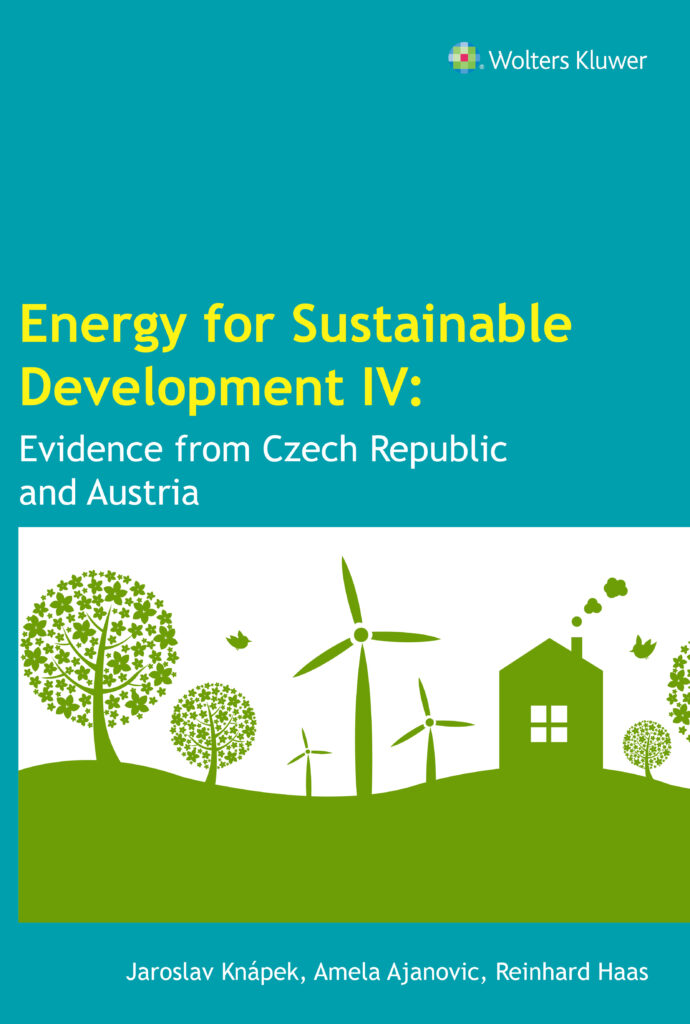
KNÁPEK, Jaroslav et al.
An expert monograph dealing with the relationship between energy systems and sustainable development written by leading Czech and Austrian experts in the field.
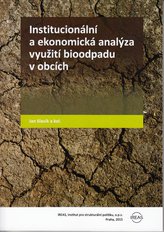
SLAVÍK, Jan a kolektiv
Do you want to know what can be done with biologically degradable waste in municipalities? This publication offers options for managing this waste, e.g., reducing its amount in landfills or its use for farmland. The first chapter introduces the role of institutional analysis in identification of problems hindering higher reuse of compost on farmland. The second chapter brings an overview of tools that can promote the quantity of compost reused on farmland. The third chapter presents an application of a microeconomic model in an effort to optimise organic waste management. The publication was made under a TACR Beta project; more information about it is here.
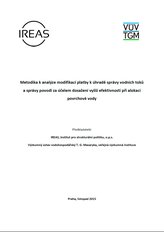
SLAVÍKOVÁ, Lenka a kolektiv
The methodology introduces an approach for estimating impacts of changes in structure of surface water payments when reflecting various solution options.
Institutional and economic analysis of organic waste reuse in municipalities
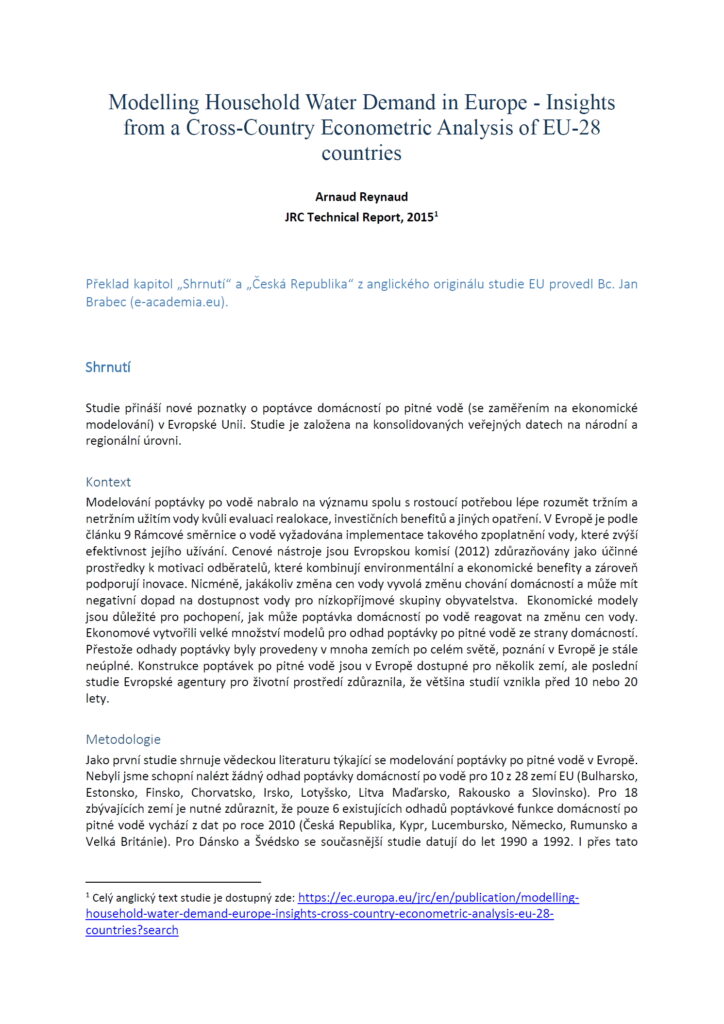
BRABEC, Jan
What effect on water consumption will changes in its price and changes in household incomes have? The European Commission has published an extensive comparison study dealing with calculations of price and income elasticity of demand for drinking water for all the 28 EU countries. The IREAS team collaborated on the making of the case study for the Czech Republic. The results clearly indicate that prices are an effective tool for controlling water allocation, since water consumers respond to their changes by adjusting the demanded quantity (this adaptation is less significant in the short term and more so in the long term).
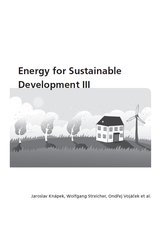
KNÁPEK, Jaroslav et al.
The third instalment in the series of expert books published by the Czech-Austrian Expert Group on Energy. The main topics of the book are energy efficiency and energy savings, promotion of use of biomass for energy purposes in the CR and a vision for Austria’s energy self-sufficiency by 2050.
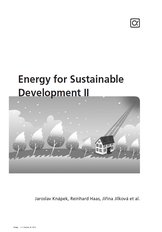
KNÁPEK, Jaroslav et al.
An expert monograph dealing with issues of energy and environmental policy, renewable energy sources, sustainable transport and energy-efficient buildings, written by a team of Czech, Austrian and Slovak academics and practising experts.
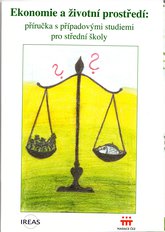
KOVÁČOVÁ, Alena a kolektiv
The handbook contains four case studies in the area of environmental education; each one involves an educational game aiming at broadening pupils’ knowledge in a fun form.
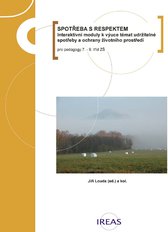
LOUDA, Jiří a kolektiv.
A methodological handbook for teachers in 7th-9th grade of primary schools (and corresponding years in multi-year gymnasia) that will help improve the awareness of upper-tier primary school pupils about sustainable consumption and show him how they can influence it specifically in their everyday lives. The book contains 8 modules that give the readers a guide for teaching about sustainable consumption in engaging and interactive ways – through educational games and case studies, competitions, etc. All the modules (except the last) are designed to provide activities for 1-2 lessons.
